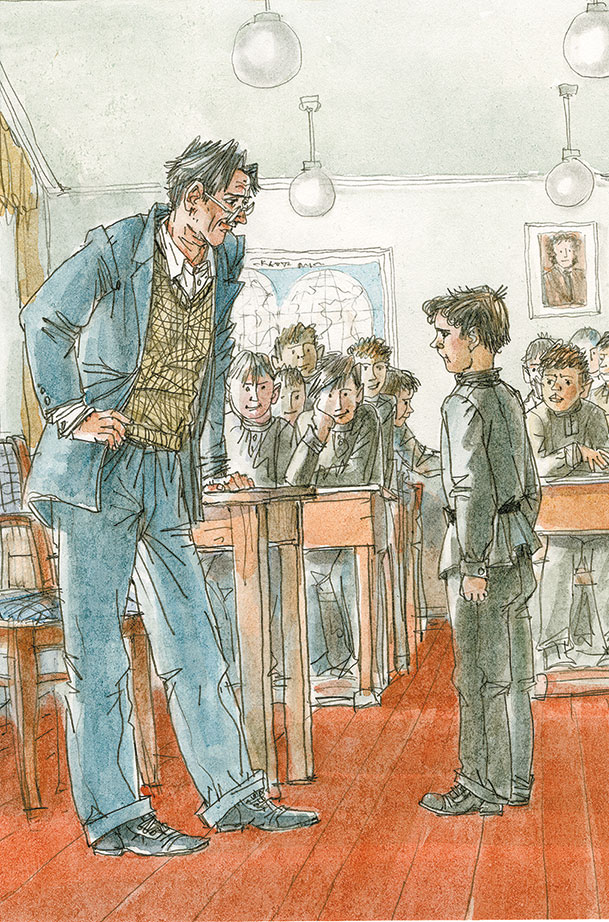What to do with a lack of sun? How to make up for the deficit of the sun.
The long, dark days of winter, the time spent sitting in front of a TV or computer, or the excessive use of sunscreen -all this can minimize the effects of the sun on the human body. Although it may seem that your tan is the only thing that suffers when you do not get enough sunlight, in fact, your health can also be affected. A lack of sunlight can affect a person physically, mentally and emotionally.
Vitamin D Deficiency
Vitamin D is a nutrient that is essential for maintaining a healthy body, including the formation of strong bones and a healthy immune system. Vitamin D is produced when the skin is exposed to the sun, and thus, lack of exposure to the sun can lead to low levels of vitamin D. A lack of vitamin D can lead to muscle and joint pain, and doctors have also documented a correlation between vitamin D deficiency and an increased incidence of heart attack stroke and heart failure, as well as multiple sclerosis. People with dark skin living in the northern regions are most susceptible to vitamin D deficiency.
Seasonal Affective Disorder
Seasonal affective disorder, or SAD, is a form of depression caused by a deficiency of sunlight. People most often suffer from SAD during the winter months, when the days are shorter and darker. Symptoms of ATS include drowsiness, loss of energy and fatigue, overeating, anxiety, mood swings, decreased sex drive, and decreased concentration. Those suffering from this form of depression may also be more prone to illness or infection due to a weakened immune system. The effects of SBP can vary from person to person. While some people experience only minor mood changes, others may not be able to work fully. Treatment for CAD includes the use of light sessions, antidepressants, and adjunctive therapy. In most cases, SAD symptoms begin to disappear with the advent of spring and the return of sunlight.
Changes in sleep patterns
Lack of exposure to the sun can also affect sleep. Exposure to the sun helps the body determine when the hormone melatonin should be produced. Melatonin helps regulate the body’s internal clock by signaling when it is time to go to bed. In a five-day study conducted by researchers in New York State, children were given glasses that blocked the blue light present in the sun. The results showed that children had slower production of melatonin, and they went to bed an average of an hour and a half later than at the beginning of the study.
Ways to deal with the consequences lack of sun exposure
There are effective ways to deal with the effects of a lack of solar radiation. The easiest way to do this safely is to increase exposure. This means that you need to go outside more often on sunny days or to open the curtains wide so that sunlight enters the room. You should use the recommended amount of sunscreen to prevent excessive exposure to ultraviolet rays on the body, but avoid excessive use of protection, as this may unnecessarily protect your body from the beneficial effects of the sun. During the winter months, you can combat the lack of sun with the help of special lamps. You can also fight vitamin D deficiency by taking it as a drug.
Let's look in this article how the lack of the sun affects our health.
1. Not only excess, but also lack of sunlight is associated with the development of some forms of cancer.
A lack of vitamin D leads to the development of prostate cancer and breast cancer and increases the risk of developing dementia and schizophrenia.
2. Deficiency of sunlight harms your heart in much the same way as abuse of cheeseburgers.
Studies have shown that vitamin D deficiency caused by a lack of sunlight doubles the risk of developing cardiovascular disease in men.
3. Your neglect of sunbathing leads to depression.

The less sun you get in the winter months, the higher your risk of developing seasonal depression. The manifestations of the disease can be very intense: mood swings, anxiety, sleep problems and even suicidal moods.
4. Women have a 200% higher risk of developing seasonal depression than men.
It is also important to remember that the average age when seasonal depression is diagnosed for the first time is 18-30 years. But in people over 60 years of age, seasonal depression is almost not found.
5. Fans to sit at night on the Internet, flipping through a news feed on social networks, it's time to take care of their health.

If you like to turn on your electronic devices before going to bed in the dark, be careful, because the radiation that comes from them disrupts our circadian rhythms (the "internal clock" of the body), leading to problems with sleep and even insomnia.
6. The more time you sleep, the higher your resistance to influenza.
You have to pay a high price for preferring a computer to sleep. How much you sleep affects immunity and the body’s ability to recover from illnesses.
7. Lack of sunlight affects your child’s vision.

Do you want your child to have sharp eyesight, and he can distinguish the inscriptions in the distance? It turns out that in children who spend more time in the sun, the risk of developing myopia is reduced. Therefore, instead of video games, send your child to play on the street.
8. Night vigil and night shift work significantly undermines your health.
A relationship was found between the tendency to work under artificial lighting and the occurrence of breast cancer, prostate cancer, diabetes, cardiovascular disease and obesity.
9. Sunbathing can prevent the development of obesity.
In addition to vitamin D, sunlight provides nitric oxide (NO) to the body. It is he who regulates the most important physiological processes, including metabolism. Therefore, sufficient insolation will provide you with an ideal metabolism and prevent overeating.
It so happened historically that some people have to live where there is so little sun that it affects their health. Especially if you do nothing with it.
The most cloudy cities in Russia
In some cities of the Fatherland, the international sun delivers less light due to cloudy weather.
The number of cloudy days per year in some cities of Russia:
- Yakutsk - 223 days
- Murmansk - 209 days
- Yuzhno-Kurilsk - 194 days
- Nizhny Novgorod - 182 days
- St. Petersburg - 180 days
- Moscow - 172 days
- Ufa, Perm, Novosibirsk, Petropavlovsk-Kamchatsky - about 168 days
- Kazan and Khatanga - 157 days
- Kaliningrad and Saratov - about 140 days
- Rostov-on-Don - 126 days.
Data: Russian State Hydrometeorological University /ngzt.ru
And here, by the way, on the contrary, the sunniest cities in Russia, whose inhabitants, perhaps, can not read the article from this place further: Troitsk, Omsk, Khabarovsk, Vladivostok, Irkutsk, Krasnodar.
Nevertheless, the closer to December 22 (the shortest day), the less sun becomes in the entire Northern Hemisphere, which sometimes entails serious health consequences.
The reason for seasonal changes in mood and well-being is a change in hormone production, which is directly related to the degree of illumination.
Sun deficiency affects: on the cardiovascular system, endocrine system, reproductive system, immune system, nervous system, mood and biorhythms, on the renewal of skin, hair and nails. In addition, with a deficiency of the sun, the production of vitamin D, one of the most important in the body, is disrupted.
Vitamin D deficiency
Vitamin D is largely synthesized by our body under the influence of direct sunlight (ultraviolet radiation). Accordingly, the closer December 22 (or if you suddenly moved from Krasnodar to St. Petersburg), the less vitamin D is in your body.
A lack of this important vitamin can lead to serious consequences.
Increased cancer risk . In 1980, Cedric Garland and Frank Garland published in the International Journal of Epidemiology the results of their research -a sufficient amount of vitamin D in the body significantly reduces the risk of colon cancer. The assumption that sunlight can protect against cancer was first formulated back in 1937 by Sigismund Peller and Charles Stephenson. Then, in 1941, they discovered that cancer mortality depends on the breadth of residence: the closer to the equator (the more sun), the fewer people die from colon cancer.
Later, information appeared about the importance of vitamin D in the fight against other types of cancer. The figures published in the review “Vitamin D for Cancer Prevention: A Global Perspective” by Garland et al are impressive. People who spend enough time in the sun or take calcium and vitamin D inside (1,100 IU of vitamin D and 1,450 mg / day of calcium) have a 50% or more lower risk of developing cancer of the prostate, breast, or intestines.
About a dozen mechanisms of the functioning of vitamin D on the immune system have been proposed: “solar vitamin” regulates growth, cell differentiation and apoptosis, inhibits vascular growth, has an anti-inflammatory effect, and some others.
Vitamin D deficiency and seasonal weight gain
The lack of vitamin D is also on the suspicion of scientists - one of the reasons for weight gain (or rather: one of the reasons for busting calories).
Vitamin D is necessary for the production of leptin - a special hormone that is responsible for the feeling of fullness during meals. If it becomes smaller, it is more difficult to satisfy hunger, ordinary servings seem small, a person begins to consume more calories and inevitably grow stout.
Scientists from Sweden conducted an experiment: examined more than 100 full people, 70% of whom had a deficiency of vitamin D in the body. All of the study participants were prescribed as supplements, and after 2 months most of them began to lose weight - despite the fact that they were eating no one limited them.
How much vitamin D is needed and how to get it
In principle, a person who eats variably, regularly and for long periods of time in the open air, should not be deficient in vitamin D. But the problem is that the modern lifestyle involves closed rooms and monotonous fast food.

To get 400 IU of vitamin, you need to eat 150 g of salmon or 900 g of cod daily.
However, we rarely eat oily fish every day and therefore can not do without the sun in any way. And the north you live, the more important it is for you to eat oily fish, eggs, liver and catch the available sun rays.
At the same time, sunbathing is quite long. Here is one of the recommendations: 30 minutes in the sun every day. If you sunbathe at a latitude corresponding to Spain or California, then 12 minutes of sunbathing a day with 50% of your body open will give you 3000 IU per day.
Can a tanning bed help?
Yes, but not any. Many lamps give a different UV spectrum, not the same as that of the sun - ultraviolet with a wavelength of A (320-400 nm) makes a softer effect on the skin, gives a tan, but weakly corresponds to solar radiation. But the wavelength B (280-320 nm) - more consistent with the necessary for the production of vitamin D.
The fraction of lamp radiation of waves of spectrum B is indicated in the characteristics of the lamps for a solarium.
For example, the designation: UVB 1% means that of all the radiation from the lamp in the UV range, 1% is UVB. This value in different types of lamps varies from 0.1% to 6%. Lamps with UV-B radiation of more than 4% are used only in the USA and are not manufactured for Europe.

Therefore, tanning bed, tanning bed, and the amount of vitamin D received from the session depends on the characteristics of the lamps and does not directly correspond to the obtained tanning degree.
In addition to tanning salmon and oily fish, you can replenish some forms of vitamin D in the body with the help of food additives, for example, in the editorial office of Zozhnik, this jar is regularly used in the autumn and winter:

Serotonin deficiency due to lack of sun
However, a lack of vitamin D is not the only negative caused by a decrease in light in life.
The lack of light is associated with a depressed state of the psyche, with a tendency to depression. When light enters the retina of the eye, a nerve impulse is sent to the brain: it is time to produce serotonin. This "hormone of happiness" has a calming effect, relieves nervous tension, relaxes and gives a feeling of pleasure.
Serotonin production can be stimulated by eating turkey, bananas or chocolate.. These products contain the amino acid tryptophan, from which the hormone of happiness is produced. But in any case, a lack of light contributes to a serious decrease in serotonin levels.
In Moscow, the duration of sunshine on an average December day is no more than 2 hours. The room in the autumn-winter period of light is 300 times less than on the street on a bright sunny day.
Actually, the most effective way to fight for serotonin is to get more light. In the northern countries (and during the Soviet Union for the inhabitants of the north), the use of special lamps to make up for the lack of light in autumn and winter is strongly recommended.
Light therapy is considered a natural method of getting rid of depression, with which you can significantly improve the condition. Moreover, even in the days of the USSR, the prevention of health with the help of light therapy was mandatory for the inhabitants of the north. And for this there are even special lamps:

Lighting for lamps for light therapy ranges from 2500 to 10,000 lux, which is equivalent to sunlight on a summer day. For a therapeutic effect, 2 weeks is enough, and the result of the session is felt after several days of treatment.
Lamps can be used even during operation, setting them at the right distance from the computer screen (during a treatment session, the lamps are usually placed at a distance of 30-40 cm from the patient). For the success of treatment, it is recommended to conduct sessions in the morning in order to “recharge” with energy for the whole day.
Nevertheless, you can do without a special lamp - just walk more on the street, even on a cloudy day and less cover the sun behind sunglasses.
Problem falling asleep due to lack of sun
Another unexpected problem that many face. Normally, in the evening, the body begins to produce the hormone melatonin, when its concentration increases, we feel a desire to go to bed. If it is not enough, we remain active and cannot fall asleep.
The mechanism of melatonin reduction in winter: to produce it, you need not only darkness (at bedtime), but also light. The fact is that the production of this hormone requires the same serotonin, which just needs light.
All recipes for lack of sun
So, here is a list of “recipes” for lack of sun in our body. And the farther and darker your window is, the more important it is for you not to ignore these tips.
1. Eat More Vitamin D-Rich Foods That Promote Serotonin Production (and especially fatty fish: salmon). As a last resort: use vitamin D supplements. Also tap on foods that promote the production of serotonin: bananas, chocolate, turkey, apples, plums, pineapple.
2. Walk more and more often, revealing as much naked skin as possible to the sun. But even in cloudy weather it’s good to walk: the illumination is much higher than indoors and has a positive effect on you.
3. Go to the solarium, but rather - fly to the sea for a couple of weeks in December-January. If not possible, just click on the items above.
4. Buy a lamp for light therapy (but a trip to the sea is still better).
5. Work out. Strength training also increases the level of serotonin we need so much in the dark.
What causes a lack of sunlight?
Darkness, eternal twilight and lack of sunlight - can one imagine a happy, full life in such an environment? After all, sunlight gives us energy, dispels bad thoughts and improves mood. Among other things, it is also necessary for health, so its role in our life is much greater than it seems at first glance, and a lack of sunlight can greatly affect well-being and mood.
According to statistics, most people suffer from depressive disorders, and feel depressed precisely in the autumn and winter, that is, when the activity of the sun decreases and daylight hours become much shorter. Agree that when you wake up at dusk, you really want to stay in bed longer, and when in the middle of the day it begins to slowly darken outside the window and you don’t have the strength to work at all. Drowsiness appears, working capacity decreases, mood worsens.
But as it turned out, the lack of sunlight has a negative effect not only on mood, but also on health and appearance. Under the influence of sunlight in our body, the production of vitamin D occurs, which plays an important role in the absorption of calcium and phosphorus. Thus, sunlight indirectly affects the beauty and strength of our nails, teeth, hair. In addition, a lack of vitamin D leads to a decrease and a bad mood. This explains the depressive state of many people in the winter. What to do with this problem?
The most ideal option is to spend more time outdoors. Especially in summer. Do not sit at home and go out every day for at least a two-hour walk. Two hours of walking is enough to develop a daily intake of vitamin D. In winter, you should not miss the opportunity to take a walk. Even if the day is gloomy, the clouds still transmit ultraviolet sunlight. In this case, it is not necessary to be directly under direct rays, it is enough just to be in a lit place, since ultraviolet light is reflected from surrounding objects and evenly scattered in space.
If you do not have the opportunity to spend so much time daily in the sun, or the daylight in your area is very short, then you can take vitamin D additionally as part of vitamin complexes. Such drugs have long been developed by pharmacists and vitamin D can now be consumed in the form of an aqueous solution. Vitamin D3 is the best digestible.
In addition to vitamin D, under the influence of sunlight, an important hormone such as serotonin, an excellent mood hormone, is produced in our bodies. It increases activity, creates a feeling of joy and reduces the risk of developing depression. But in the dark, melanin is produced. This hormone, on the contrary, is responsible for calming the body, contributing to falling asleep. That is why in winter, when it quickly gets dark on the street, one always wants to go to bed early.
With hormones, the situation is more complicated than with vitamin D. Of course, hormonal complexes for oral administration have also been developed by pharmacists, but they have a lot of contraindications and are not recommended for frequent use. Therefore, the best way to make up for the lack of serotonin is to regularly do street walks in the daytime.
As you can see, the lack of sunlight does not have a very good effect on the body, so to be not only cheerful, but also healthy and beautiful, regularly walk outside in the sun. The sun will definitely give you beauty and good mood!
It’s not difficult to guess how to deal with the autumn-winter lack of light - to flood your home and jobs with artificial light. It’s much harder to figure out which light to choose. It’s up to you to choose, because the times are the only possible incandescent bulbs are long gone, and different light sources appeared on the consumer market.
I will say right away - there is no ideal among the lamps, so the choice will be very difficult.
Which light to choose?
Modern lamps give out different shades of light - from white and bluish to yellow with redness and even violet. Which light to choose? It is not simple. Natural light is the light of the sun, and it is white. But turn on the fluorescent lamp, which gives exactly the white color, and many wrinkle - do not like it.
Living under a light that irritates the eye is also wrong. Therefore, everyone will have to make a choice on their own: either recreate natural light, or indulge in their emotional state. The choice, by the way, is great. There are lamps on the market that give out different shades of light: the light of a candle flame; a dark red hue resembling bonfire coals; the so-called daylight, or direct sunlight; White light; daylight with a touch of clear blue sky; Dense blue and even purple.Lamps
Lamps are easier to choose because, from a health point of view, the main requirement for a light source is the constancy of the light flux. That is, the light should be even, not blinking. Only one lamp gives an absolutely even stream of light - a good old incandescent bulb. All other new types of lamps flicker.
But! It all depends on the frequency of the pulses. For example, an old-style fluorescent lamp emits 100 pulses per second, and this is very noticeable to the eye. But if the lamps give out 20 thousand pulses per second, this flicker is almost imperceptible to the eye. That is, when choosing between a fluorescent, LED or lamp with an organic LED, pay attention to the pulse frequency. The bigger, the better.
Amount of light
This is a very important issue. After analyzing the traditions and habits of lighting their homes, experts regretfully learned that most of the population is not properly covered.
First of all, low light was detected. To ensure that the level of illumination is comfortable, according to the standards, it is necessary: \u200b\u200bfor a room with active physical activities - 300 Lx (illumination is measured in Lux), for the dining room - 200, for the relaxation room - 100, for the living room - 200, for the hallway - 100, for the wardrobe, bathroom and toilet - 200, for the corridor - 100, for reading - 30-50 (of course, a stream of light directed towards the book).
To operate with such a concept as Lux is unusual for us, so we will translate it into more understandable values. For example, to get 200 Lx of light in a room, you need about 1 60 W incandescent light bulb for every 1 square meter. And how many in our rooms burn? 2-3, maximum 5 bulbs in the chandelier. What happens if you turn on the standard number of lamps? Yes, complete ruin! However, their number can be reduced if you choose the right lamp.
Lamp
We simply choose the luminaires - which one we liked, we buy this one. In fact, the quality and quantity of light that will be in the apartment depends on its “design”, the shape of the ceiling and even their color. To get the maximum amount of light, for example, from a chandelier on the ceiling, you need to choose a lamp with large shades with high-quality reflectors (the best reflector is foil). In addition, motley, painted shades and with a large thickness of glass “eat” the light.
Lighting in the apartment
Our home is also important for increasing the amount of light. That is, even minimal light can be amplified by walls and ceilings.
There is only one rule - to create the largest possible reflective surface. It reflects white color best, therefore, potentially “dark” apartments need to be painted in bright colors - walls, ceiling, and floor.
Speaking of walls. Wallpaper is better to choose not only light, but also “smooth”. Mirrors can also increase the amount of light - the more they will be in the rooms, the better.
By the way, if you create the most reflected light in the room, you can get another unexpected joy - visually increase the size of the home.
As for the light, then with the help of walls, floor and ceiling with maximum light reflection, its amount can be increased up to 50%!







